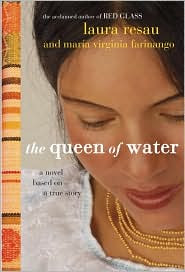
Like the ungrammatical title of this novel, Retta has some rough edges, but she's got a dream and the talent to support it. She plans to get out of her small town in Tennessee and make it in Nashville as a singer.
It's a well-worn cliche -- small town girl comes to the big city, suffers her fair share of set-backs and minor successes and gradually starts coming out on top. To make sure that we truly appreciate how cliche it is, each chapter is prefaced with a brief biography of a real country musician legend. The overall result is a tribute to the struggles that artists (and country singers in particular) have borne to become the stars that they became.
It is old territory, but even a classic story can be fun to read again when it is well-written. The trip becomes even more enjoyable when you have good company and Retta (despite perhaps a few improbably good twists of luck) is a fine nuanced character. She works hard, has sharp instincts, and a general basic decency, and the reader will be prone to find her sympathetic. Supplee thankfully avoids the temptation to introduce a romantic thread and instead keeps the story focused on Retta and Retta alone. This is a smart decision and allows us to focus on her efforts and her successes.
Another strength of this novel is Supplee's respect for the locale and the people. A story placed in such a colorful town as Nashville could easily have been exaggerated with stereotypes. Supplee doesn't fall into that trap and gets the cultural details (including the accents) down. The folks in the story are not dumb hicks and instead leap off the page like real people.
In sum, this is a bit of literary comfort food with decent presentation and down home charm.








































